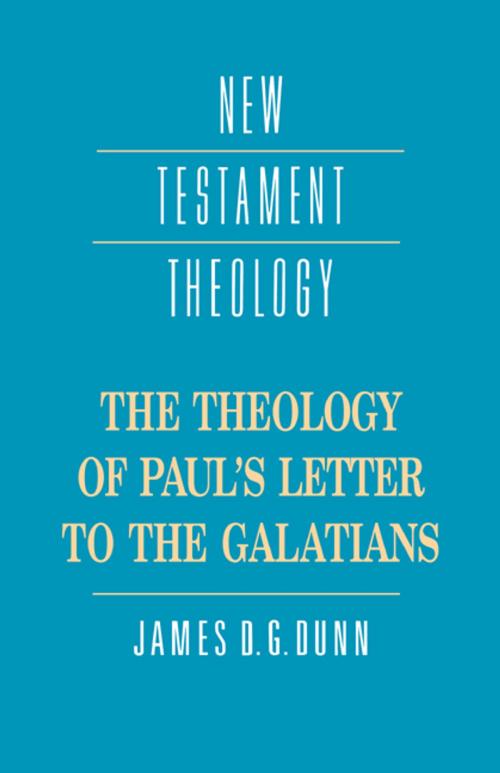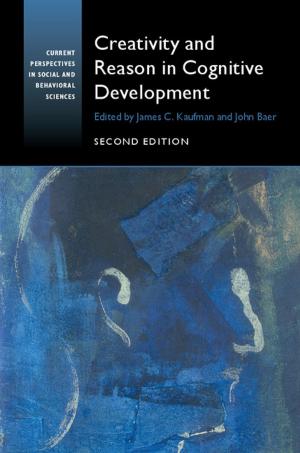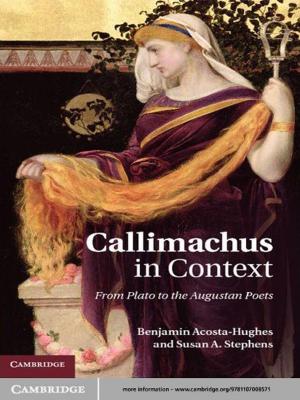The Theology of Paul's Letter to the Galatians
Nonfiction, Religion & Spirituality, Bible & Bible Studies, New Testament, Study| Author: | James D. G. Dunn | ISBN: | 9781107384774 |
| Publisher: | Cambridge University Press | Publication: | September 9, 1993 |
| Imprint: | Cambridge University Press | Language: | English |
| Author: | James D. G. Dunn |
| ISBN: | 9781107384774 |
| Publisher: | Cambridge University Press |
| Publication: | September 9, 1993 |
| Imprint: | Cambridge University Press |
| Language: | English |
Paul's Letter to the Galatians is one of the fiercest and most polemical writings in the Bible. That is what makes it, for the author of this study, such an exciting document to deal with. It emerges from the early days of a vigorous new movement (Christianity), when basic principles were first being formulated, and when the whole character of the movement was at stake. In the pages of Galatians we witness fundamental features of Christian theology taking shape before our eyes, where the living heart of Paul's gospel is encountered. For James D. G. Dunn there is an elemental quality about the letter, to which those tired of compromising half-truths are drawn when they feel the impulse to return to first principles. This book, which benefits from this perspective on Paul, explains more clearly than hitherto both the issues which confronted Paul and the powerful theological arguments he brought to bear in response, and casts light on a document still capable of shaping lives and theology today.
Paul's Letter to the Galatians is one of the fiercest and most polemical writings in the Bible. That is what makes it, for the author of this study, such an exciting document to deal with. It emerges from the early days of a vigorous new movement (Christianity), when basic principles were first being formulated, and when the whole character of the movement was at stake. In the pages of Galatians we witness fundamental features of Christian theology taking shape before our eyes, where the living heart of Paul's gospel is encountered. For James D. G. Dunn there is an elemental quality about the letter, to which those tired of compromising half-truths are drawn when they feel the impulse to return to first principles. This book, which benefits from this perspective on Paul, explains more clearly than hitherto both the issues which confronted Paul and the powerful theological arguments he brought to bear in response, and casts light on a document still capable of shaping lives and theology today.















